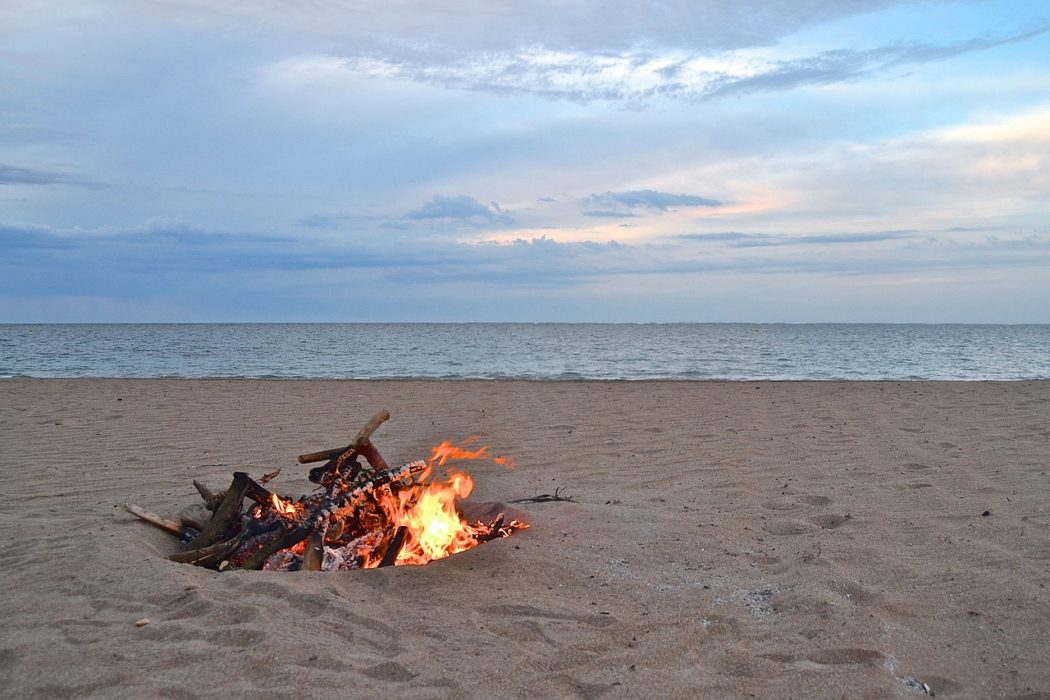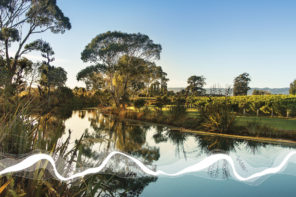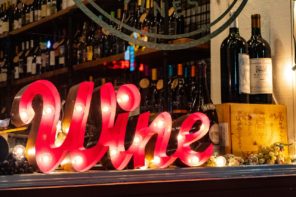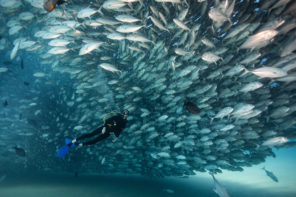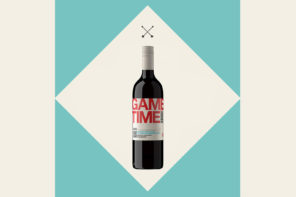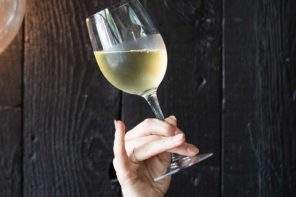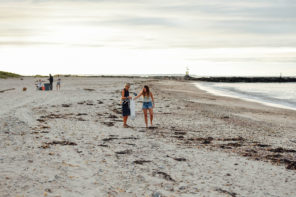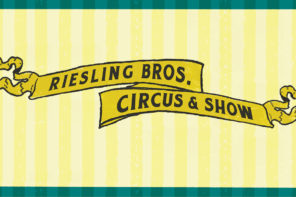Breakfast Wine with Sommelier Eric Moorer
Whalebone contributing editor Laura Rubin is pulling up her camp chair to engage with a series of disruptive change-makers for good, those good people igniting the sparks, to talk about some stuff you probably won’t find on Google.
“Natural wine” is definitely having a buzzy moment, but it does make me wonder—have I been drinking unnatural wine until now? I was able to address this deep question when I sat down with Eric Moorer, sommelier for the D.C.-based natural wine purveyor Domestique. He spilled beans on how he evades hangovers, whether natural wine is actually good for us (I asked with fingers crossed), that funkiness quotient, shifting diversity in the wine world, and more. Pour yourself a glass and join the conversation…
Pour yourself a glass and join the conversation…
Laura Rubin: Domestique is devoted to natural wines and while I enjoy them, I don’t actually know what the definition of “natural wine” really is. It doesn’t seem to follow specific guidelines like, say, organic produce. You’ve said, “It’s not funky, it’s farming,” but what actually makes a wine natural?
Eric: For me, it’s always been really simple when it comes to natural wine. It’s just wine without using all of the modernization and mechanization that has become available to us in the last 150 years.
Wine does not make itself. Natural wine starts with organic farming. Deliberate and well-thought-out choices. These farmers are out there doing the work, putting in the labor, waking up at five o’clock in the morning to walk through the vineyards and check on all the plants and vines by hand, making choices to not add any chemicals, herbicides, fungicides, or pesticides to the crops. That farmer isn’t then going to add a ton of chemicals. That wouldn’t make any sense. It comes down to the fact that you’re making decisions along the way to make a wine that is not hugely adulterated.
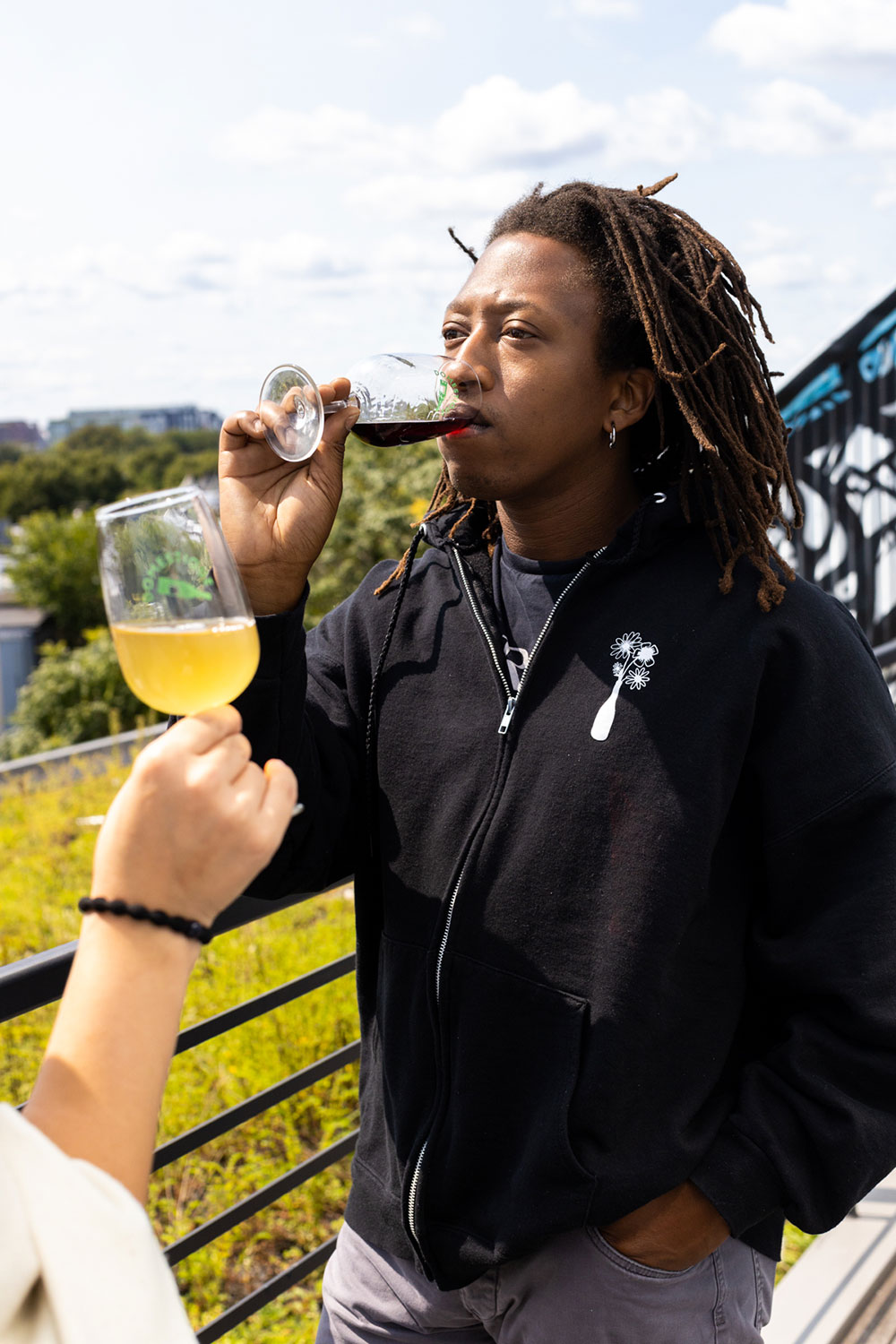
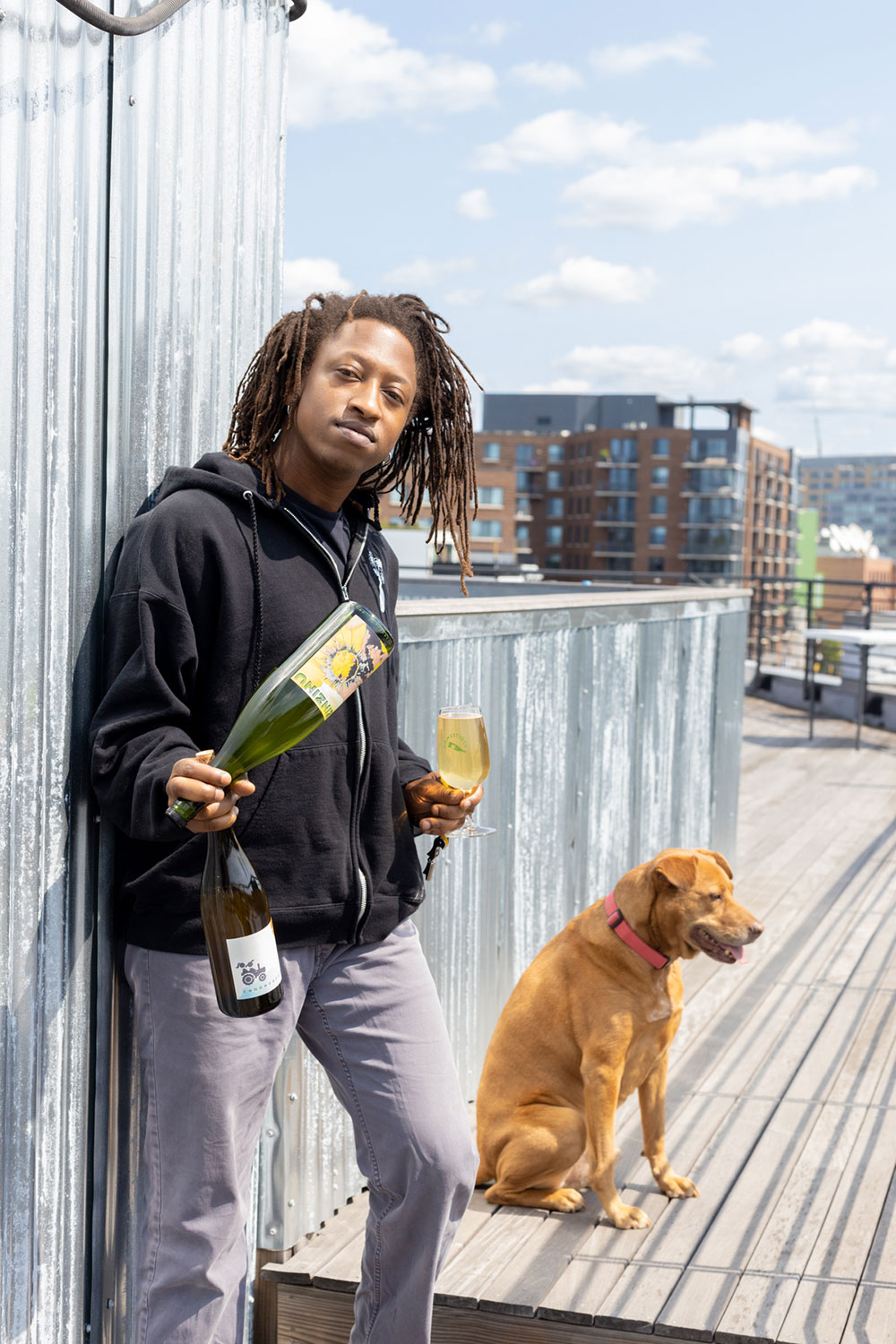
Laura Rubin: So two-thirds of it is intent, essentially. It’s the “how,” not necessarily the “what.”
Eric: That’s a really good way of looking at it. We often talk about how things taste natural. I feel that’s unfair because you’re then ruling out a host of farmers who make natural wine, but it may not result in an esoteric product.
Laura Rubin: The idea of natural wines is appealing to me, but I’ll be honest—funkiness is not always what I want to drink. Do you think the perception of natural wines often puts people off?
Eric: Yeah, it’s a double-edged sword. You have a lot of people who are seeking out that profile. At the same time, that’s often the way people are introduced to natural wine, which is incredibly limiting. The correlation of funkiness-equals-natural-wine doesn’t help broaden the scope of people who could potentially be enjoying these wines.
Wine does not make itself.
Laura Rubin: And from your perspective, regardless of an expanded flavor profile, what is the upside of people drinking natural wine? Is it healthier in some way? Here in L.A. natural wine is basically the new kombucha.
Eric: I always find the whole health conversation around natural wine to be super interesting, where it’s like, “Oh, this wine is healthy.” I don’t know how anyone’s really justifying that. It’s still alcohol. But if you want to talk about the lack of acid adjustments or chemicals that are allowable in certain areas of the world that can go into your wine, then yeah, I suppose that’s less unhealthy.
Laura Rubin: Sounds like the American Spirit analogy. “If I’m going to smoke, I’m going to smoke natural tobacco.” It’s still a vice, but the consumer perception is that it’s not quite as bad.
Eric: Yeah, if I’m going to do this thing—drink alcohol or smoke tobacco—this is a better alternative. What turns a lot of people on to natural wine, especially in younger generations, is the idea that it’s this anarchist, stick-it-to-The Man segment of the wine world.
Laura Rubin: Punk rock wine. Your whole approach is a breath of fresh air considering how traditionally stuffy the world of wine is.
Getting to talk about wine in an easier, more conversational way is something that I’m a big, big fan of.
Laura Rubin: I hear people say, “I don’t know anything about wine.” In response, I usually ask, “Well, do you know what you like? Do you know what you don’t like?” Once you walk it back to really basic things people often do have a sense of their preference, they’re just not confident stating it because of the specificity of the language associated with the wine world.
Eric: That’s exactly it. At Domestique, we encourage our customers to use whatever language they have. Regardless of whether you feel like you have the best vocabulary or understanding of wine, stating your preference out loud helps grow confidence—especially when you’re not made to feel like a jerk for not knowing something.
Laura Rubin: You were mentioning that younger people seem to gravitate towards natural wine. Is there a connection with any specific psychographic or demographic?
Eric: Wine—and natural wine specifically—was presented to my generation through different rappers and celebrities who were into these wines starting five, six, seven years ago. There are also some producers who are very popular, who almost came up as this counterculture of wine. It’s the exact opposite of all the things that you have been taught about wine in your entire life. And once I saw somebody who looked like me drinking wine, I was like, okay. I guess we can do this.
Laura Rubin: Who are some of those figures?
Eric: I will never forget the first time that I watched Somm and I saw DLynn Proctor. I noticed, “I dress like that dude. I kind of sound like that guy.” It was awesome for me to see that. Then trying wine from Andre Mack, who makes really cool wine in Oregon. Seeing those guys, getting to have more understanding about wine, growing in confidence as to who I was as a person, and being able to express that while I was working the floor made wine even more appealing to me.
Being very casual, easygoing, challenging people a little bit, being myself, I feel like that allows me to connect with people. They were able to see that it’s not this stuffy guy who’s super serious, but he does know what he’s talking about. And he can put it in a way that I understand.
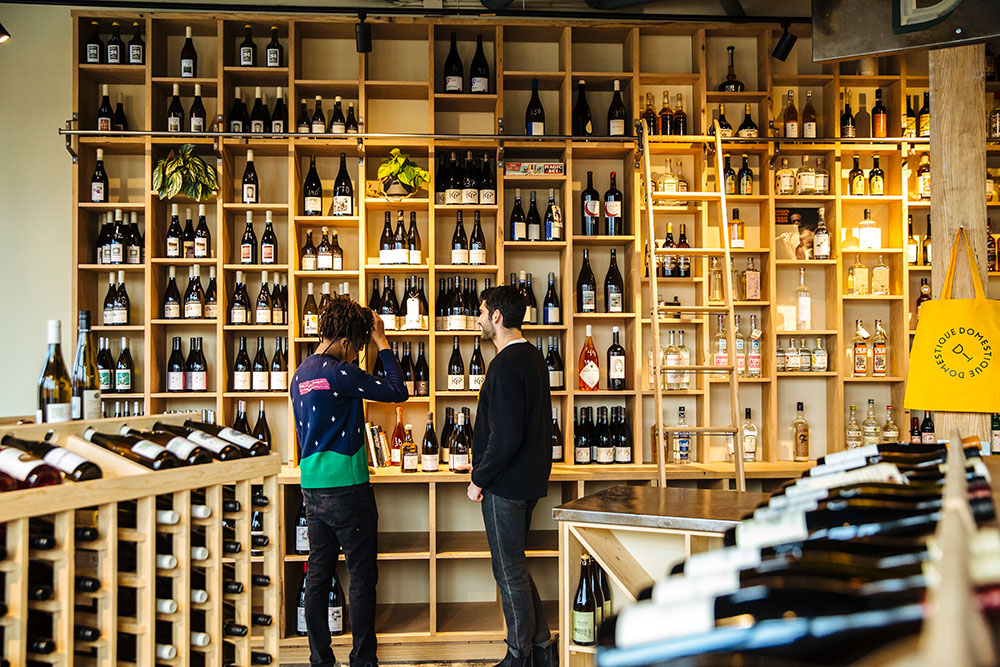
Laura Rubin: Not the usual somm interaction, that’s for sure. There’s a myth that there’s a direct correlation between cost and value in the wine world. I was wondering if you could speak to that a bit.
Eric: You don’t have to break the bank to get the best wine. Look, I love expensive wine. It’s very often worth it, but there is just something so inherently enjoyable about finding a bottle at a great price point that you can drink again and again.
Laura Rubin: And how would you recommend somebody learn about what they enjoy at their price point? Is it research, reading? Is it by tasting things?
Eric: Oh, they just have to drink a lot. That’s just what it comes down to. Personal experimentation. You can’t figure out what you like or don’t like just by research because it’s all subjective anyway.
It’s the exact opposite of all the things that you have been taught about wine in your entire life.
Laura Rubin: All in the name of research! In terms of pairings, my favorite holiday is National Fried Chicken Day on July 6th and my death row meal is fried chicken, vintage rosé champagne, and coleslaw. That combination slays me. Do you have any favorite pairings?
Eric: I try to make all of my pairings with handheld foods. Maybe that’s my natural wine attitude. I try to keep it simple. I want things that pair with real stuff that people eat—delicious sandwiches, chips, cured meats, different pickles. Things like that. I want pairings to be approachable. As an example, in our wine club, this month is a 2003 Bordeaux-style blend from Slovenia. I recommended that you either save this wine for a special dinner or the next time that you order Shake Shack delivery. Personally, I’m going with the Shake Shack delivery pairing.
Laura Rubin: Shake Shack for the win. One of the things I really like about your digital wine club events is that you always incorporate great music. As you’re thinking about your music choices are they colored by what wines you’re going to be pouring?
Eric: I would say maybe the opposite actually.
Laura Rubin: So you choose what you’re pouring based on what you’re listening to, rather than the other way around? You start with the music?
Eric: Yeah, everything is kind of driven by what I’m listening to. We buy wines ahead of time, but mixing and matching is a mood-based thing. If you read the wine club notes, you can see what I was listening to and how that affected me.
Laura Rubin: That’s dope. What are you seeing in the wine world that you’re particularly excited about or consider really interesting? What’s next?
Eric: I noticed that people have gravitated towards lighter styles of red wine with less extraction that you’re able to chill. It has made red wine something that people seek out for refreshment, which I think is really cool.
You see the rise of the chilled red and the death of the rosé season. That’s actually like the thing I hate the most in the wine world—rosé season. You can drink rosé whenever you want to! I think that that’s where we’re headed, where people are going to start looking at rules and saying, “Why though? I don’t get why we do that. So let’s not do that.”
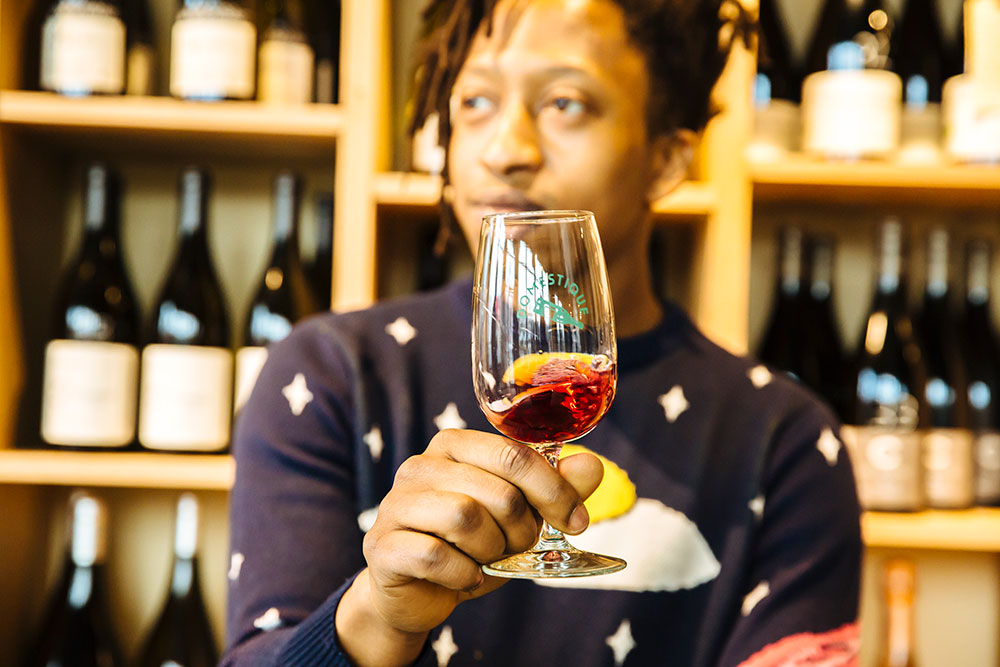
You’re also going to continue to see people seeking out indigenous varieties from places with winemaking history, and maybe places that have no winemaking history that people are looking to do interesting things in. Georgia has 8,000 years of winemaking history, but you’re just now really hearing about it in the last 10. Places like Croatia and The Czech Republic, where they’re making really cool wines and will become increasingly popular.
I think we’re also going to see a comeback of varietals that weren’t necessarily as popular in bigger regions. For instance, Timorasso is opposed to just Nebbiolo. We’re going to see people continuing to go back to kind of how things started before the wine world was this big, commercial venture.
Laura Rubin: A return to the roots of wine-making and diversification in terms of both geography and grapes?
Eric: Yeah. Look at what’s happening even here in the US. Producers who have come along on this natural wine wave, how many of them work with Cabernet? Or those that do make Cabernet, how are they making it? It’s done in a much more approachable style where the alcohol is lower, it’s less extracted. They’re making wines that are drinkable immediately. They can age and be beautiful, but they are not in line with the old expectations.
Laura Rubin: Sounds like some of my best friends. Speaking of lower alcohol, I noticed that you speak a lot to the zero ABV trend. This idea that you can make yourself a cocktail, or you can have something that’s interesting on your palette, but it’s not necessarily going to get you tipsy, is something I’m seeing more of.
Eric: I personally hate being hungover. My job is alcohol, which I have zero complaints about. Zero. But there is an after-effect that’s not necessarily the desired result. And I wanted a way to avoid that. So we started branching out, looking around, tasting, seeing what zero-proof beverages were out there.
The first one that I came across was Proteau from John deBary who used to be beverage director for all of David Chang’s restaurants in New York. I went to a cocktail convention and he was teaching a class. It really piqued my curiosity. Getting to taste what somebody like him could create in terms of complexity of flavor and super interesting textures without alcohol was incredible.
There are products out there that don’t make you feel like you’re missing out on something by not drinking. And I’m going to go to bed like a normal person, not falling asleep with all of my clothes on, on top of the blanket with all the lights on. Everybody’s done that.
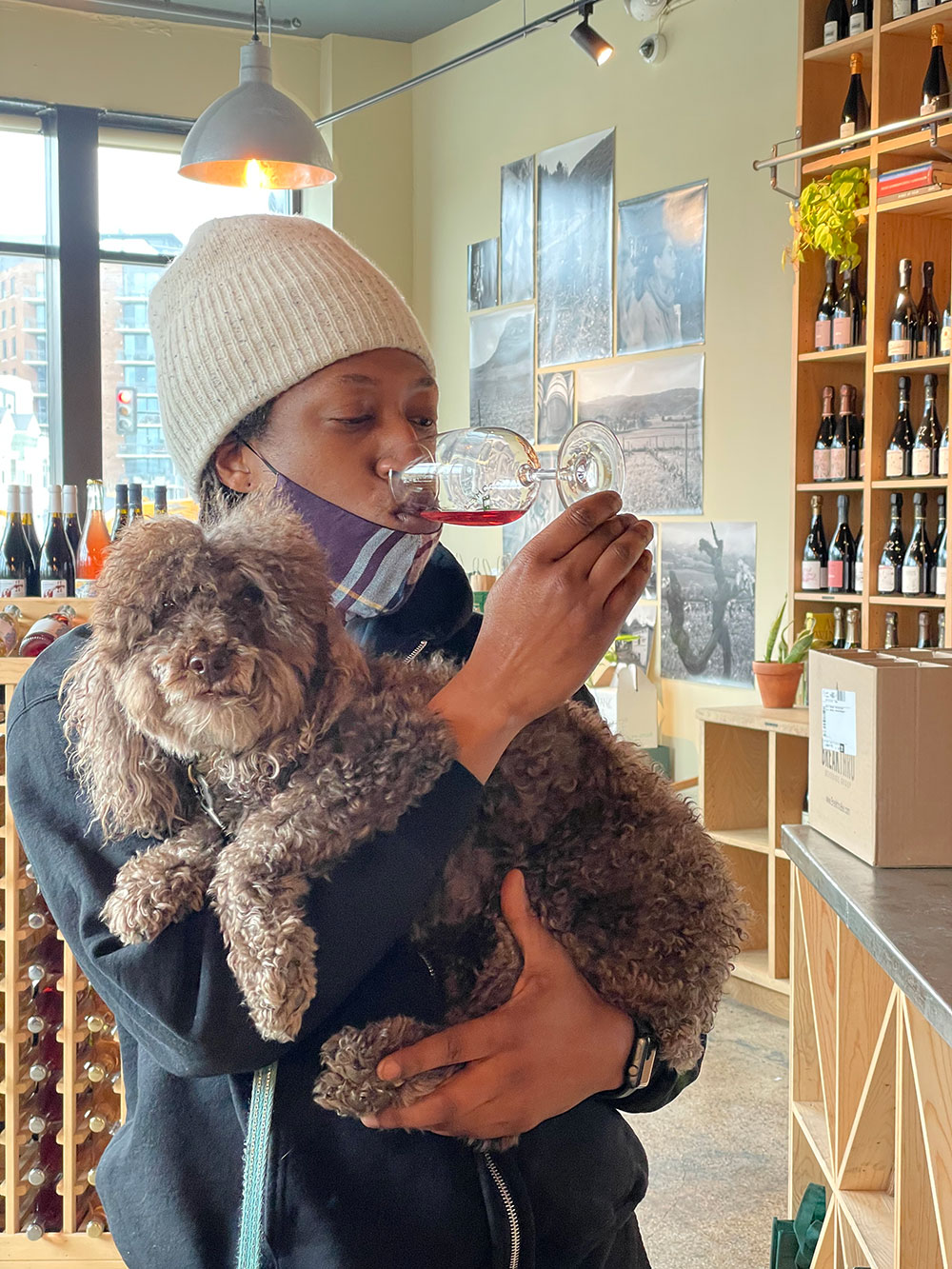
Laura Rubin: I’m invoking my fifth amendment rights here. As you’re talking about diversity of flavor profiles and production geography, are you also seeing more diversity within the industry as far as representation goes? Are you seeing also more people of color go into wine production?
Eric: Yes, I would say more people of color have been brought into different parts of the wine world in general. More women and people of color have taken that opportunity by the scruff of the neck and really done it. I love what I’m seeing on that front. It’s so cool to think about an area that I did not feel represented in when I first started in this industry, and now to see so much success and passion from people who historically people didn’t think drank wine.
Laura Rubin: I’ll drink to that. There’s a perception that natural wine is somehow better for the environment. Is that true?
Eric: In general, there are farmers who are deeply invested in making sure that the farming that they do will allow for themselves and future generations to continue to be able to work this land. In that sense, absolutely. There’s a lack of harmful chemicals that are being used in the open that would create runoff. From that standpoint, yes it is better for the environment.
Is it great for the environment that we’re still putting hundreds of thousands of pallets of wine on a liner across the ocean? Realistically, no. I do think it is better for the environment because you are being intentional about the choices made in farming and how that is going to affect things in five years,10 years, 20 years, 50 years…
Laura Rubin: That’s a really fair answer. As we wind down, any last thoughts you’d like to add?
Eric: Stop saving your sparkling wine for special occasions. And any wine is breakfast wine if you try hard enough.

